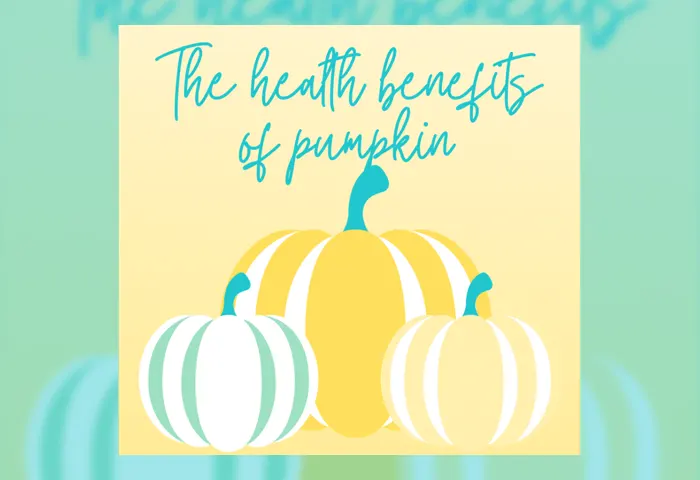Pumpkin Health Benefits: Naturopathic Nutrition Guide for Better Health
Pumpkin health benefits are vast and extend beyond its delicious taste to support overall wellness. In this blog, we’ll explore the nutritional content of pumpkin and its seeds, the many health benefits they provide, and practical ways to incorporate more pumpkin into your diet.

Nutritional Powerhouse: Pumpkin and Its Seeds
The flesh of pumpkins contains essential vitamins and minerals, such as vitamin C, B1, folic acid, pantothenic acid, potassium, beta carotene, and dietary fiber. These nutrients contribute to antioxidant protection, immune support, and digestive health.
Pumpkin seeds, a favorite roasted snack, are rich in minerals like zinc, phosphorus, magnesium, potassium, and selenium. These minerals support skin health, immune function, and hormone balance.
Antioxidant and Anti-Inflammatory Properties
Pumpkin’s carotenoids, including beta carotene, zeaxanthin, and lutein, are potent antioxidants that combat oxidative stress, an imbalance caused by free radicals damaging cells and DNA. Oxidative stress accelerates aging and contributes to chronic disease development.
The carotenoids in pumpkin also support eye health by protecting retinal cells from damage. These pigments are absorbed in the digestive tract and transported to the eyes, where they help maintain vision and reduce the risk of age-related macular degeneration.
Skin Health and Collagen Support
Beyond internal benefits, pumpkin’s antioxidants protect skin cells from UV damage, helping prevent sunburn and premature aging. The high vitamin C content aids collagen production, essential for skin elasticity, hydration, and wrinkle reduction.
Zinc from pumpkin seeds supports acne healing by regulating oil production and reducing inflammation. This mineral also helps balance hormones that influence skin health.
Digestive and Hormonal Health
Pumpkin’s fiber content supports healthy digestion and regular bowel movements. However, since many pumpkin nutrients are fat-soluble, proper digestion of fats is necessary for optimal absorption. Addressing digestive health issues can improve energy levels and reduce discomfort like bloating.
How to Enjoy Pumpkin and Its Benefits
Incorporate pumpkin into your meals through:
-
Pumpkin seeds as snacks or salad toppings
-
Pumpkin puree in smoothies, soups, or baking
-
Pumpkin seed oil as a flavorful addition to dressings
Pumpkin Smoothie Recipe
-
¼ cup pumpkin
-
1 green banana
-
½ cup plant-based milk
-
3 tbsp chia seeds
-
¼ cup yogurt
-
A dash of cinnamon
Blend all ingredients until smooth and enjoy a nutritious, gut-friendly treat.
Pumpkin is a versatile, nutrient-dense food that supports eye health, skin vitality, digestion, and overall wellness. By thoughtfully incorporating pumpkin and its seeds into your diet, you can enjoy its many health benefits naturally and deliciously.
Exploring More Ways Pumpkin Supports Your Health
Pumpkin health benefits extend far beyond its delicious flavor and vibrant color. Its rich nutrient profile makes it a valuable addition to any diet, especially when aiming for holistic wellness.
 Immune System Support
Immune System Support
One of the key health benefits of pumpkins is their high vitamin C content, which is crucial in supporting the immune system. Vitamin C stimulates the production and function of white blood cells, which are essential for fighting infections. Additionally, the antioxidants found in pumpkin help reduce inflammation and oxidative stress, both of which can weaken immune defenses. Regular consumption of pumpkin can help maintain a strong immune system, especially during cold and flu seasons.
Heart Health and Blood Pressure Regulation
Potassium, abundant in pumpkin, is another crucial contributor to pumpkin’s health benefits. This mineral helps regulate blood pressure by balancing the effects of sodium in the body and relaxing blood vessel walls. Diets rich in potassium are linked to a reduced risk of stroke and cardiovascular disease. Including pumpkin in your meals can contribute to maintaining healthy blood pressure levels and supporting overall cardiovascular function.
Weight Management and Satiety
Thanks to its fiber content, pumpkin offers significant health benefits related to weight management. Dietary fiber promotes feelings of fullness and helps regulate blood sugar levels, preventing spikes and crashes that can lead to cravings. Adding pumpkin to meals or snacks can be a satisfying way to support healthy eating habits and maintain energy balance throughout the day.
Bone Health
Pumpkin seeds are a good source of magnesium, a mineral crucial for bone formation and maintenance. This is one of the lesser-known pumpkin health benefits, supporting skeletal strength and reducing osteoporosis risk. Magnesium works alongside calcium and vitamin D to keep bones strong, making pumpkin seeds a valuable addition to your diet, especially as you age.
Mental Health and Mood
Emerging research highlights pumpkin’s health benefits for mental well-being. Nutrients in pumpkin seeds, such as magnesium and zinc, play essential roles in brain function. Magnesium helps regulate neurotransmitters and may reduce symptoms of anxiety and depression. Zinc is involved in brain signaling and immune function, with deficiencies linked to mood disorders. Including pumpkin seeds in your diet may support cognitive function and emotional balance.
Creative Ways to Add Pumpkin to Your Diet
If you’re looking to increase your intake and enjoy more pumpkin health benefits, here are some creative ideas:
-
Pumpkin Oatmeal: Stir pumpkin puree and cinnamon into your morning oats for a nutritious and warming breakfast.
-
Pumpkin Hummus: Blend pumpkin puree with chickpeas, tahini, garlic, and lemon juice for a seasonal twist on classic hummus.
-
Pumpkin Soup: This creamy pumpkin soup, made with vegetable broth, onions, and warming spices, is perfect for cooler days.
-
Pumpkin Pancakes: For a flavorful breakfast treat, add pumpkin puree and spices like nutmeg and cinnamon to pancake batter.
-
Pumpkin Energy Balls: Combine pumpkin puree with oats, nuts, seeds, and a touch of honey or maple syrup, then roll into bite-sized snacks.
Tips for Choosing and Storing Pumpkins
When selecting pumpkins for cooking, select sugar or pie pumpkins, which have sweeter, denser flesh than large carving pumpkins. Fresh pumpkins should feel heavy for their size and have firm, unblemished skin.
To store pumpkins, keep whole pumpkins in a cool, dry place for several weeks. Once cut, wrap the pieces tightly and refrigerate, using them within a few days. Pumpkin puree can be frozen in airtight containers for extended storage.
By incorporating pumpkin into your diet and enjoying its many benefits, you support your immune system, heart health, weight management, bone strength, and mental well-being. This versatile food is a powerful ally in your journey toward optimal health. Now this is called Pumpkin health benefits


 Immune System Support
Immune System Support